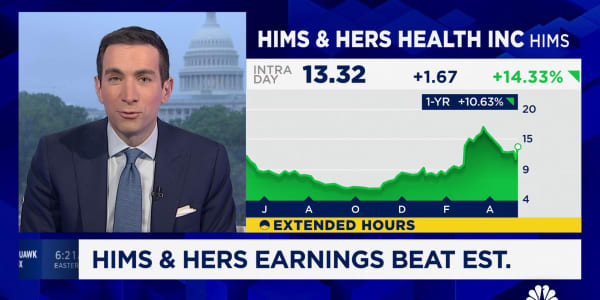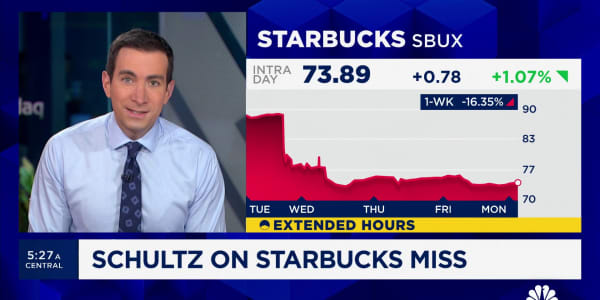Recapping the day's news and newsmakers through the lens of CNBC.
Warm and fuzzy ... Iran?
Notes:
Will the warm and fuzzy vibes from Iran's new president, Hasan Rouhani, bring lower oil prices? Some experts think the conciliatory signs are genuine, as Iran has been hammered by sanctions on oil exports and faces potential attack over its nuclear program. Some think better relations with the U.S. could result in a larger flow of Iranian oil and, perhaps even more importantly, would ease regional tensions that help keep oil prices high. Others caution that the West is still a long way from lifting the sanctions.
Quotes:
"Anything that reduces the tensions will certainly help oil prices move lower. We've already had the Syrian premium coming out of the market ... The Iran premium, I've got to believe that it's somewhere around $10 a barrel."—Addison Armstrong of Tradition Energy
"I wouldn't expect much of a drop in the price of oil just because of the diplomatic outcome. The Iran premium that's in the price right now has been the actual reduction in supply. It will take an act of Congress to remove the sanctions."— Rhodium Group partner Trevor Houser
Traders got their hands in the cookie jar
Notes:
What's faster than the speed of light? Nothing, you say? How about traders' reactions to last week's Fed's decision not to trim its bond-buying program? It turns out some traders in Chicago were able to react to the news faster than it could have got there from Washington, traveling at Warp 1. The Fed is looking into the situation, and reminding some news organizations that when they promise not to release embargoed information early, they're not supposed to cross their fingers.
Quote:
"We will be conducting follow-up conversations with news organizations to ensure our procedures are completely understood."—Federal Reserve statement
Pop the bubbly
Notes:
Anyone who used the term "housing bubble" a year ago was probably talking about history. But now the term is popping up more often to describe the present or near future. New S&P/Case Shiller figures show that prices of existing homes gained 12.4 percent in the 12 months ended with July, the largest surge in more than seven years. Though the pace has slowed a bit, up 0.6 percent in July versus 0.9 percent in June, some of the hottest markets are looking bubbly, says Yale economist Robert Shiller. Prices of new homes have been going up even faster.
Quotes:
"I'm starting to worry about a bubble. In some cities it's looking bubbly now. The really dramatic cities tend to be cities that had bubbles in the recent past— California, Phoenix, Vegas... It's regional, somewhat. The northeast is relatively mild."—Yale economist Robert Shiller
"Construction of single-family homes has been depressed since late 2007, while the U.S. population has increased by more than 12 million over that time. Since underlying demand is, by our estimate, running at a rate nearly twice that of housing completions, the shortages are likely to get larger before getting smaller."—Patrick Newport of IHS Global Insight
Big bank earnings blues
Notes:
Mortgage applications are plummeting even though home sales are picking up. That's because for years the lion's share of applications have been for refinancing, a market that's shrinking due to the rise in mortgage rates. Now the banks that make those loans are warning that the lending decline will crimp this quarter's results. One analyst says the eight biggest banks are a 55 percent drop in mortgage revenue this quarter compared to a year ago, causing a 5 percent drop in net revenue. That list includes JPMorgan Chase, Wells Fargo, Bank of America, Citigroup, Goldman Sachs, Morgan Stanley, PNC Financial Services Group and U.S. Bancorp.
Quote:
"While Q3 will be a 'noisy' quarter for all major banks including BAC we think BAC will show better underlying cost and revenue trends than its major peers."—Atlantic Equities analyst Richard Staite
Dude! What a bummer!
Notes:
You know how it is: you hear that an aged celebrity has passed away and you say, "Gee, I though he died years ago!" Well, that's the case with the VW bus, dear to the hearts of all children of the '60s. It turns out VW is still making them, in Brazil. But not for long. The company says an inability to meet modern safety standards for things like airbags and antilock brakes will cause production to cease Dec. 31. More than 10 million of the Transporter vans have been built over the past 63 years.
Quote:
"The van represents freedom. It has a magic and charm lacking in other vehicles. It's about the open road, about bringing smiles to peoples' faces when they see an old VW van rolling along."—Damon Ristau, director of the documentary "The Bus"
—By Jeff Brown, Special to CNBC.com




